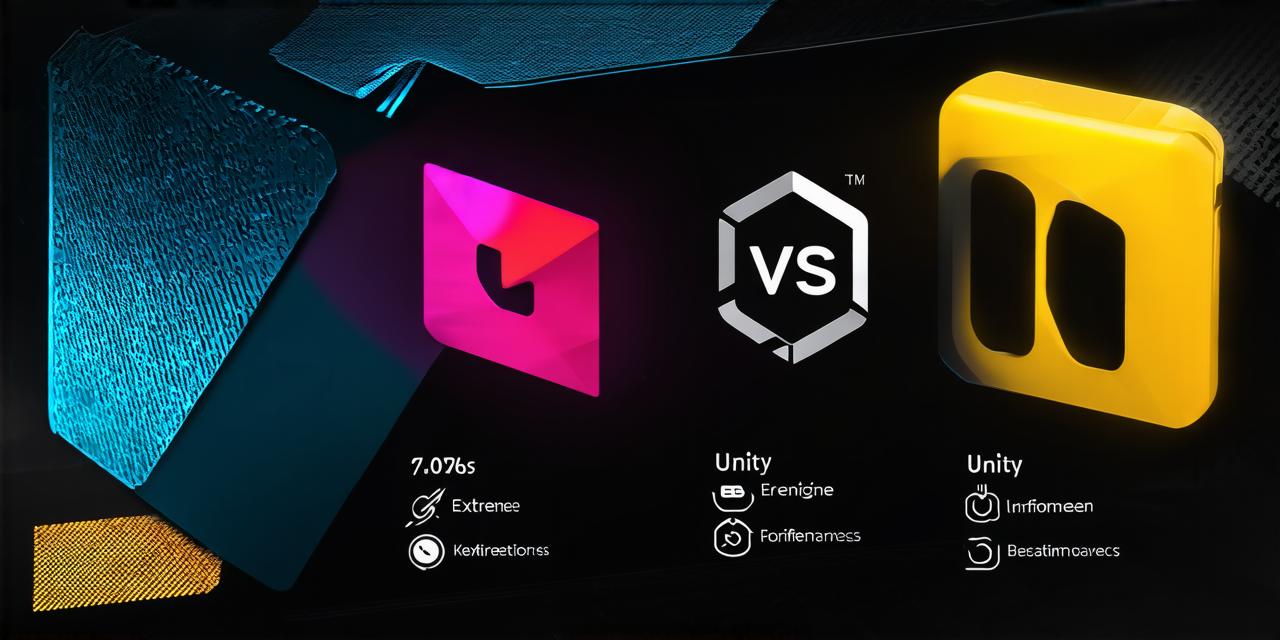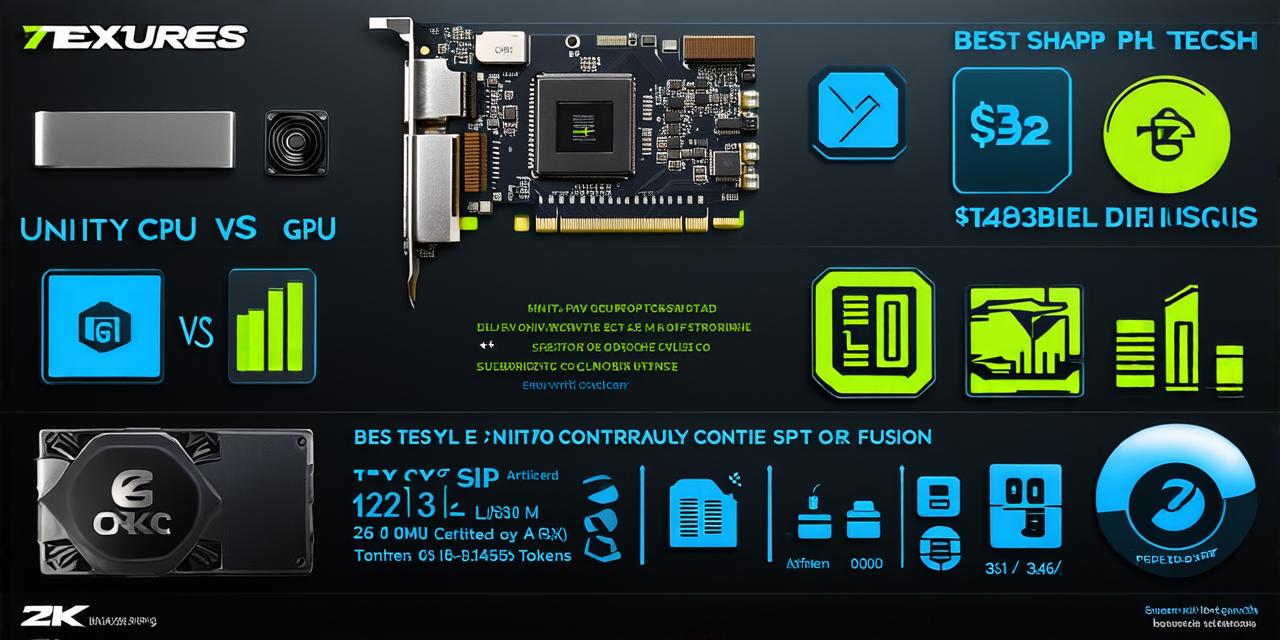Both Unity and Unreal Engine are popular game engines that can be used to create a wide range of interactive experiences. While they share some similarities, they also have their own unique features and strengths. In this article, we will explore the key differences between the two engines and help you decide which one is best for your needs.
Overview of Unity
Unity is a cross-platform game engine that supports the development of 2D, 3D, VR, and AR games for various platforms, including Windows, Mac, iOS, Android, and consoles. It was first released in 2005 and has since become one of the most widely used game engines in the industry.
Key Features of Unity
- User-friendly interface: Unity has a simple and intuitive interface that makes it easy for beginners to start creating games.
- Asset store: Unity has a large and active asset store, which allows developers to find pre-built assets such as models, animations, and sound effects to use in their projects.
- Cross-platform development: With Unity, developers can create games that run on multiple platforms with a single codebase.
- Support for 2D and 3D graphics: Unity supports both 2D and 3D graphics, making it a versatile tool for game development.
- Large community support: Unity has a large and active community of developers who contribute to the engine’s growth and provide support and resources for other users.
Overview of Unreal Engine
Unreal Engine is a real-time 3D creation tool that can be used for game development, filmmaking, architecture, engineering, and design. It was first released in 1998 and has since become one of the most powerful and feature-rich game engines on the market.
Key Features of Unreal Engine
- High-performance graphics: Unreal Engine is known for its high-quality graphics and advanced rendering capabilities, making it ideal for creating realistic 3D environments.
- Blueprint visual scripting: Unreal Engine uses a visual scripting system called Blueprint, which allows developers to create complex game logic without writing code.
- Advanced animation tools: Unreal Engine has a powerful animation system that includes features such as motion capture, skeletal animations, and particle effects.
- Support for VR and AR: Unreal Engine supports the development of virtual reality (VR) and augmented reality (AR) experiences.
- Large community support: Like Unity, Unreal Engine has a large and active community of developers who contribute to its growth and provide resources and support for other users.
Comparing Unity and Unreal Engine
While both engines share some similarities, they also have distinct differences that make them better suited for different types of projects.
Performance and Graphics
Unreal Engine is generally considered to be the more powerful engine when it comes to graphics and performance. It uses advanced rendering techniques such as global illumination and real-time ray tracing, which result in highly realistic and detailed visuals. However, Unity also offers high-quality graphics, especially with the release of Unity 2019.

Ease of Use and Accessibility
Unity is known for its user-friendly interface and ease of use, making it a great choice for beginners who are new to game development. It also has a large and active asset store, which can save developers time and effort when looking for pre-built assets. Unreal Engine, on the other hand, has a steeper learning curve and requires more technical knowledge to get started with. However, it offers a lot of advanced features that make it ideal for experienced developers who want to create highly complex games.
Cross-Platform Development
Both engines support cross-platform development, meaning that developers can create games that run on multiple platforms with a single codebase. However, Unreal Engine has better support for consoles and mobile devices, while Unity has better support for web and desktop platforms.




